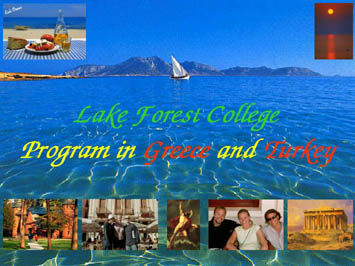 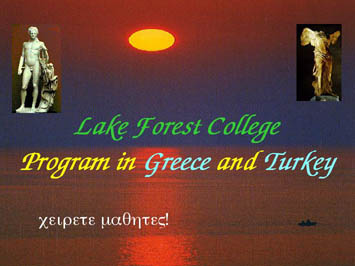 |
|
|
|
|
2001:
A Greece & Turkey Odyssey
Students
and Itinerary (very roughly!)
The
Classical World
|
|
|
|
  |

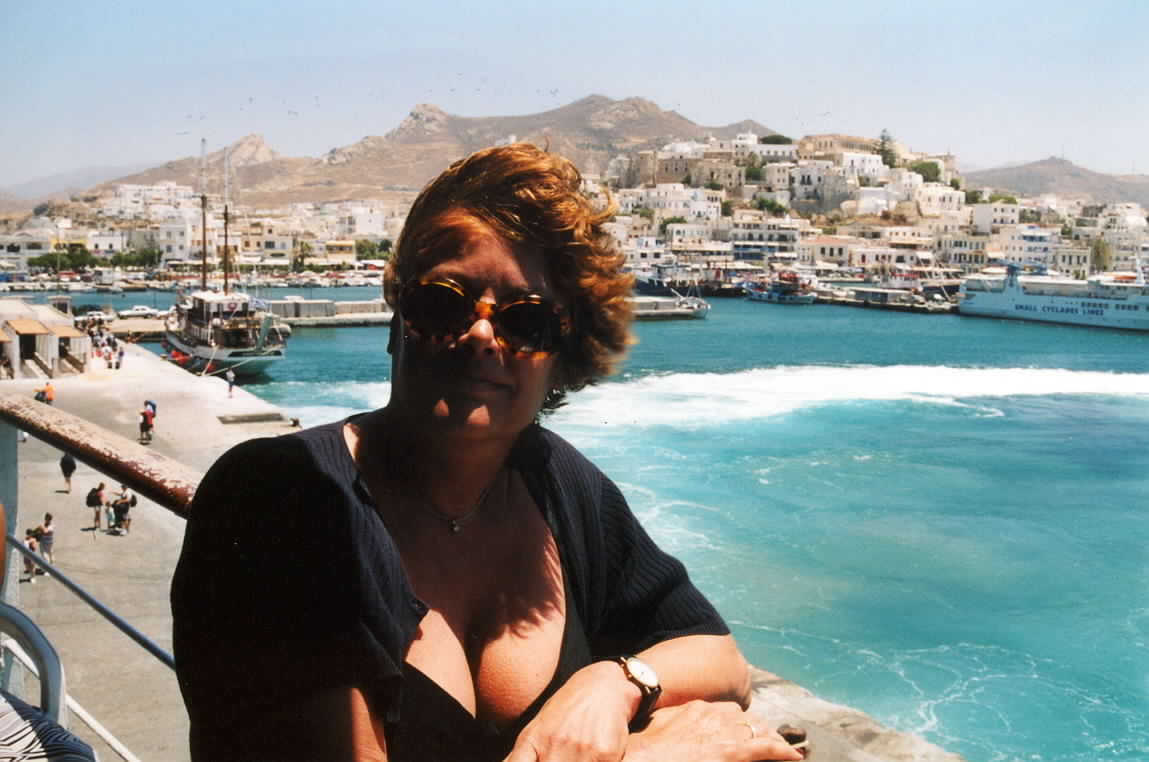
on the Cycladic island of Naxos, thanks to the Greek ferry boats,
this Ariadne was not left behind
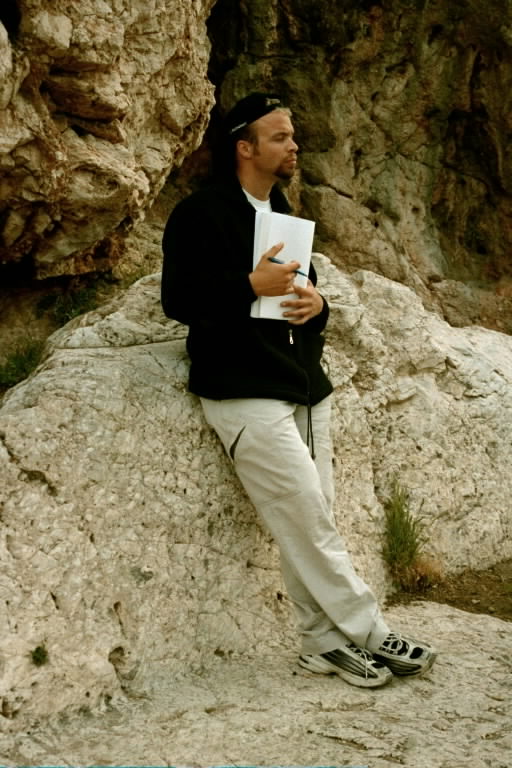 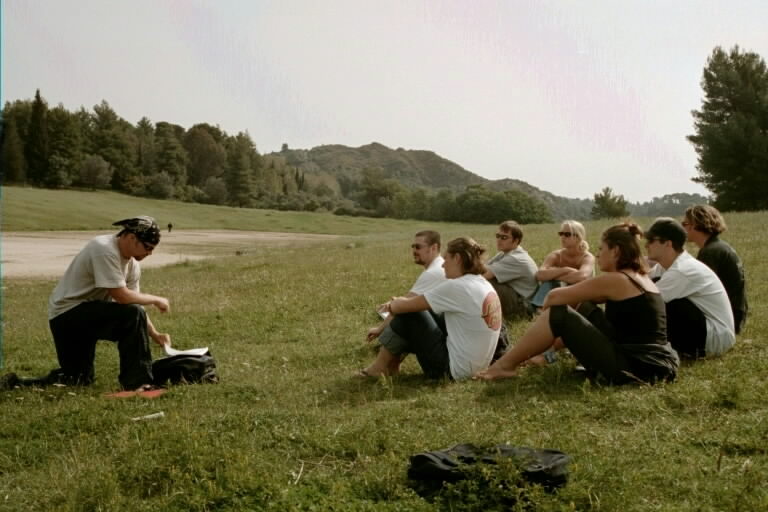 |
|
fluctation of politics atop the Athenian acropolis: O tempora! O mores! |
|
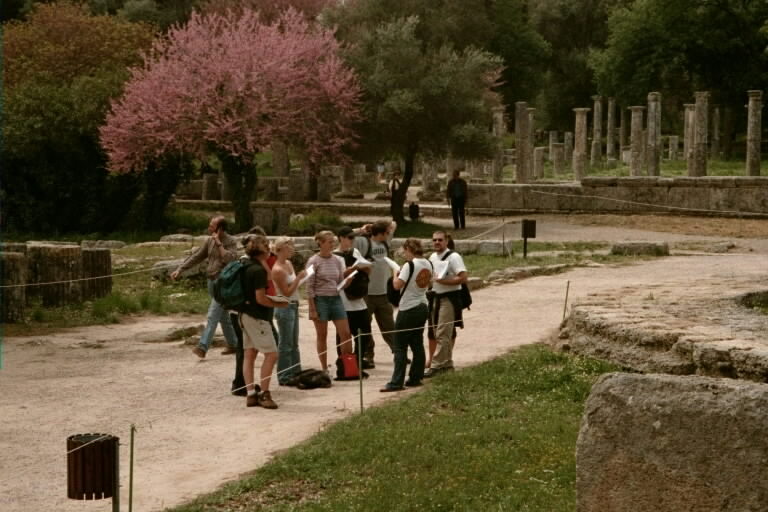
in front of the Philipeion . . . |
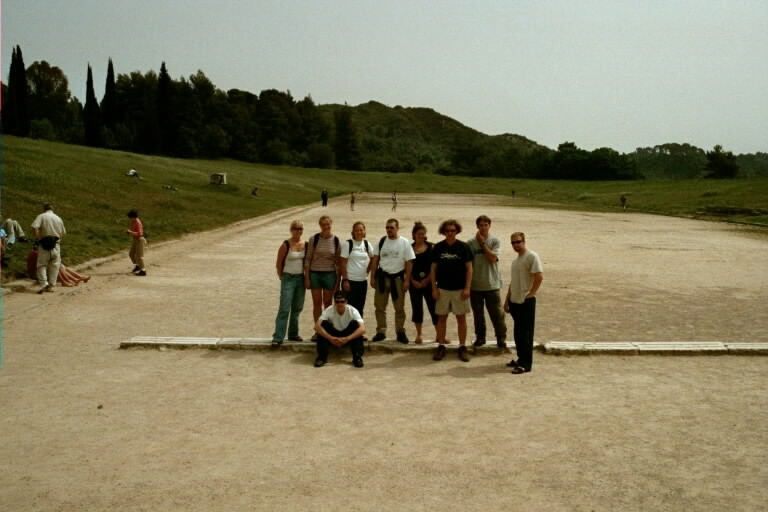
. . . and on the race track at OLYMPIA |
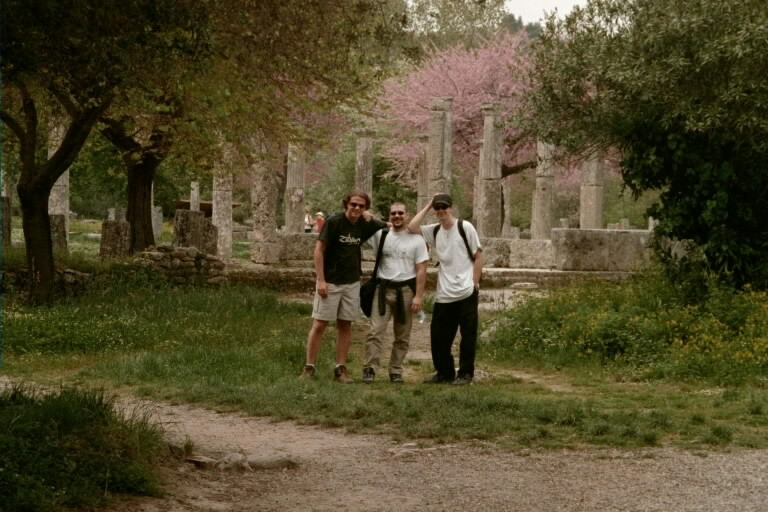
we all need someone we can lean on. Professor Schultz suffering from
shoulder pain at Olympia
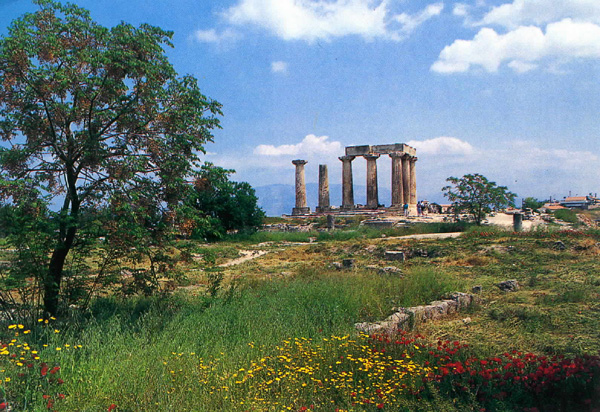
Corinth: our group first dated this temple based on the archaeological
evidence, and then debated with 4 guest archaeologists (from this site
and the American School in Athens) whether the temple was dedicated to
Athena or Apollo--an undecided question in scholarly circles
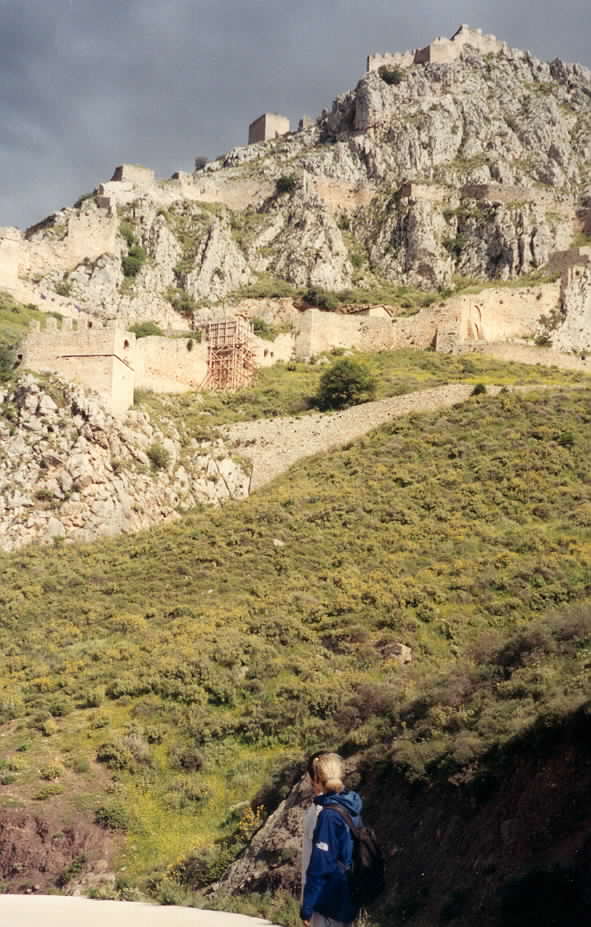
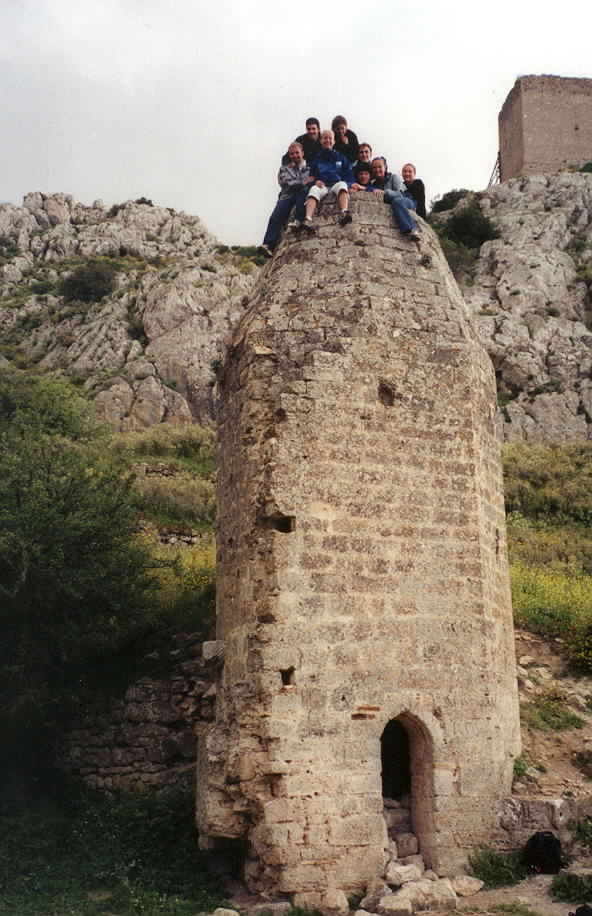
Lindsay Bigelow ready for the ascent to Akrokorinth, a medieval fortress
above the
classical site. And just how did those students get up on that ancient
minaret, anyway?
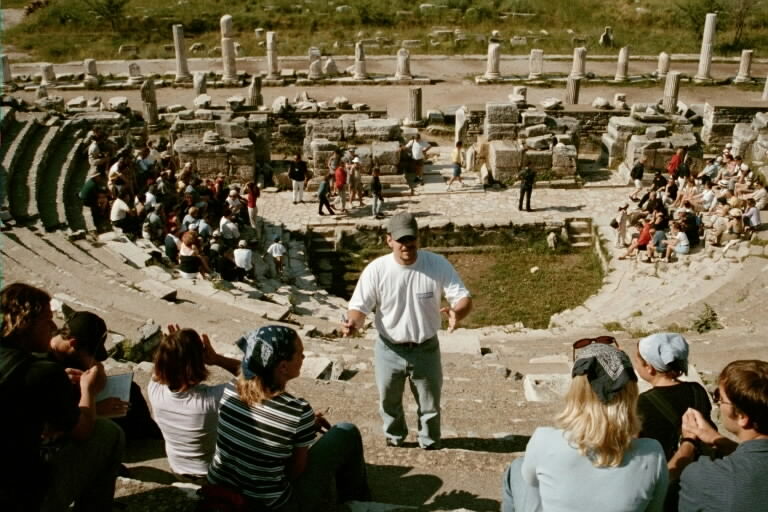
despite the seating arrangements, at Ephesus the students give Professor
Schultz their undivided
attention
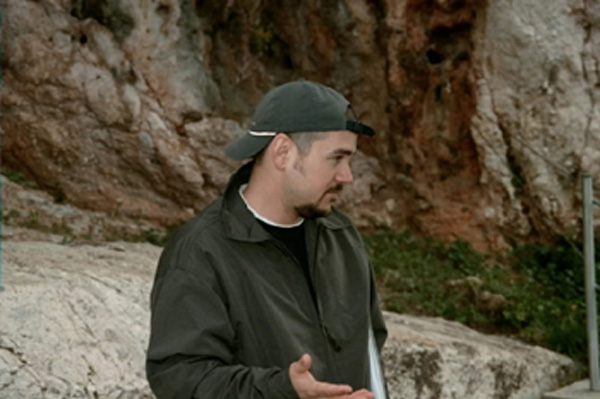
here he is:
PETER 'Feel the Bulge' SCHULTZ, the Jesse Ventura of rock-'n'-rollin'
site visits to disputed-identity classical and archaic Doric temples, and
author of a groundbreaking study of the Nike temple on the Acropolis in
Athens

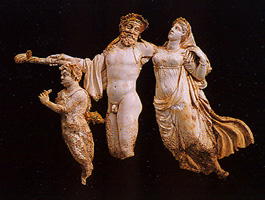
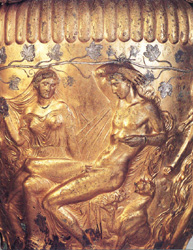
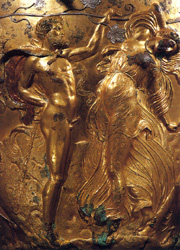
a short detour from the group's itinerary, but chronologically in line,
brings us to the home of Philip of Macedon and his great son, Alexander.
While the palace at Pella is relatively modest, Philip's burial tomb at
Vergina is splendid, as are many of the exhibitions in the Thessalonike
museum, including the gold and bronze Dervini chalices, wedding gifts for
a Macedonian prince, prominently featuring erotic scenes of the Marriage
of Dionysus and Ariadne and the ever-present Satyr, importuning a reluctant
nymph
 |
 |
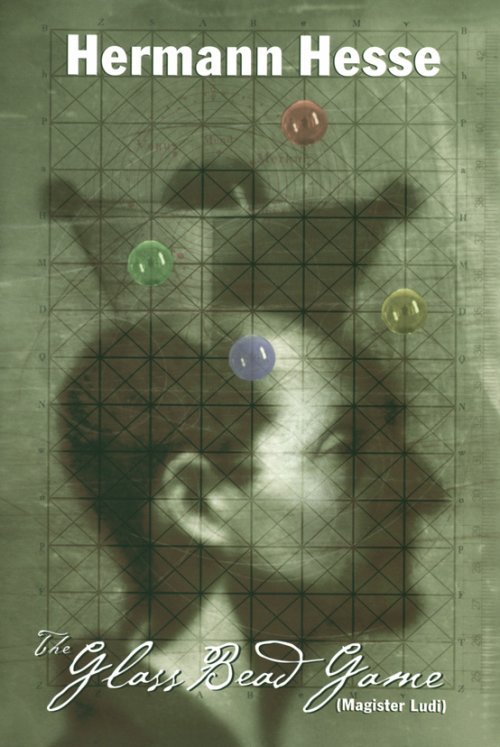 |
 |
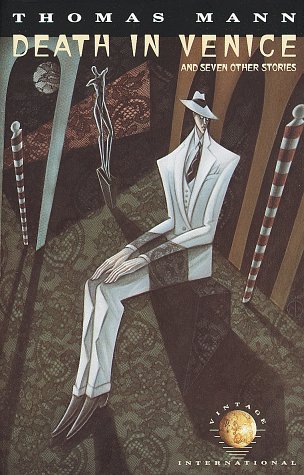 |
 |
 |
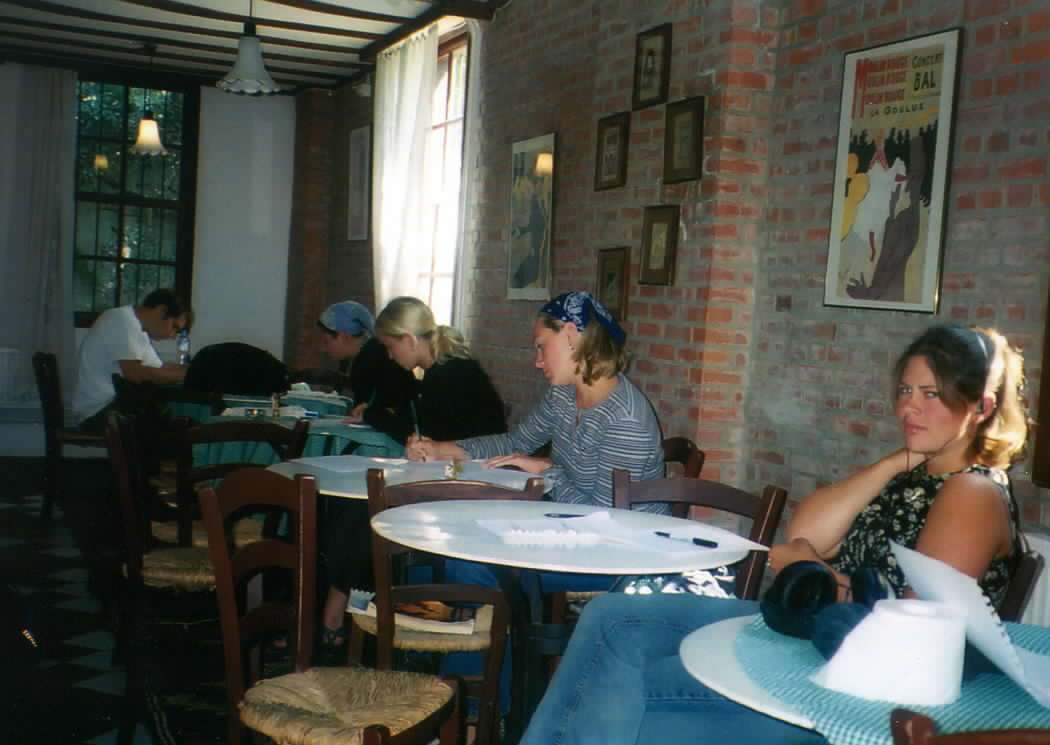 |
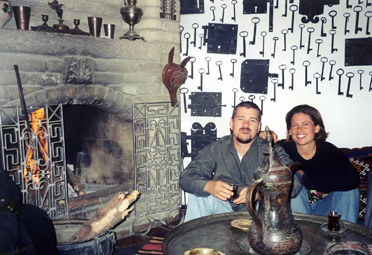 |
|
the final exam, but at least it was held in the tranquil garden lodge at the Hotel Kalehan, Selçuk (Ephesus) |
|
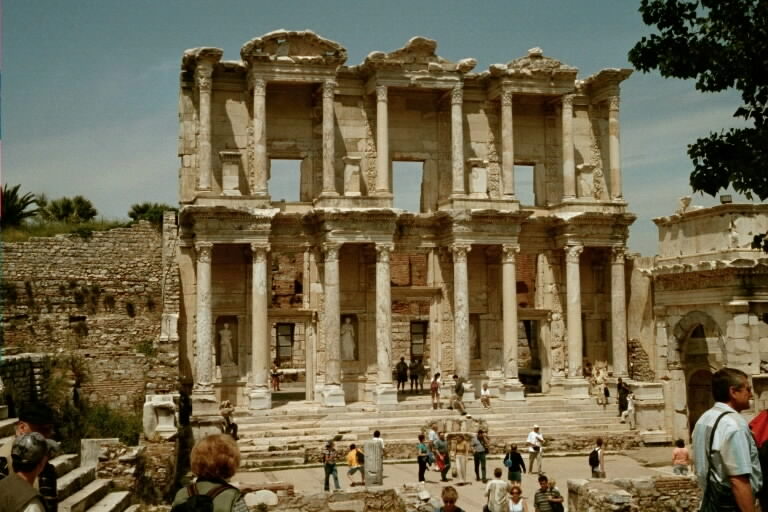 |
 |
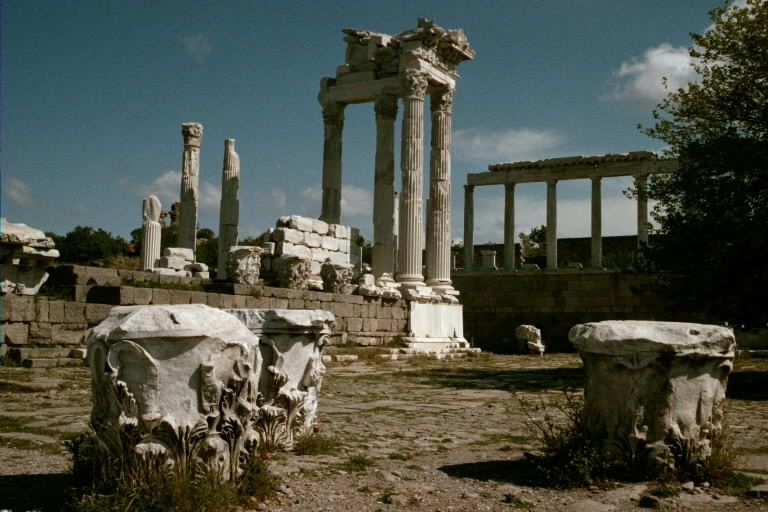 |
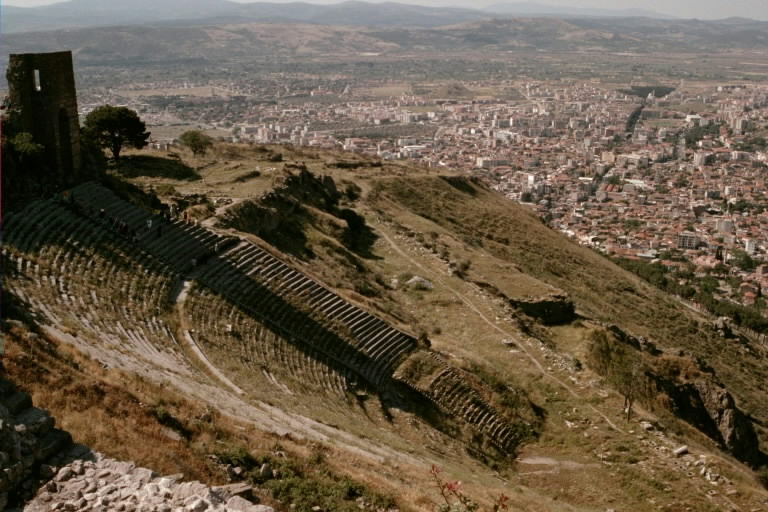 |
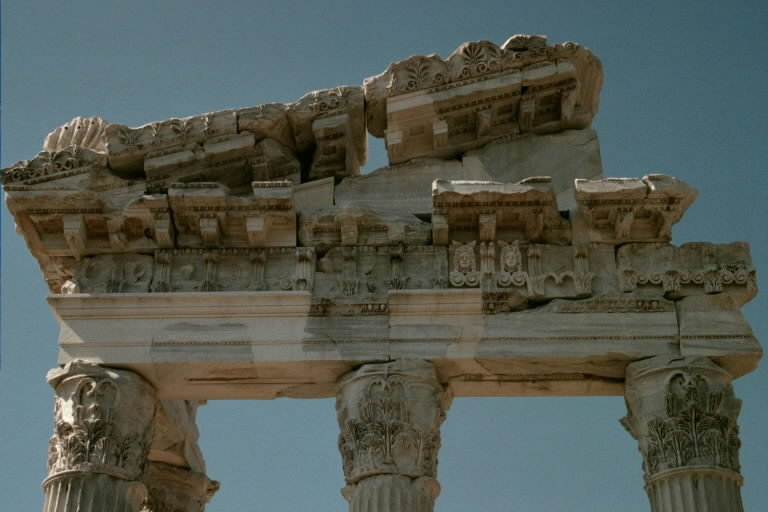 |
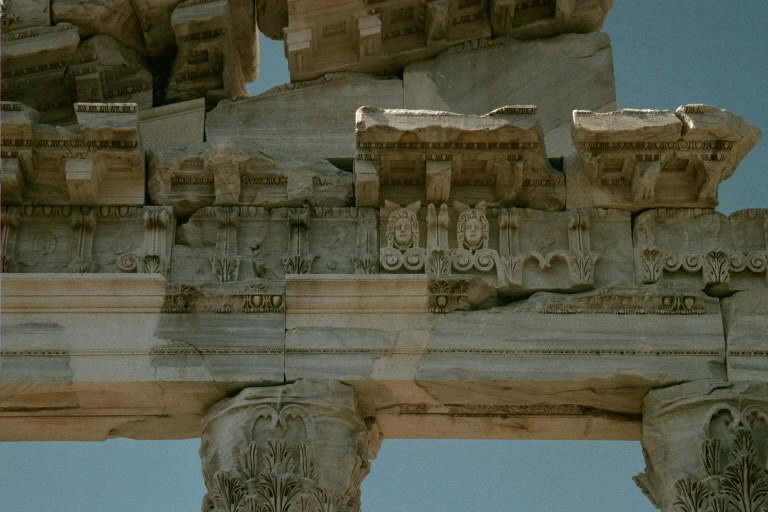 |
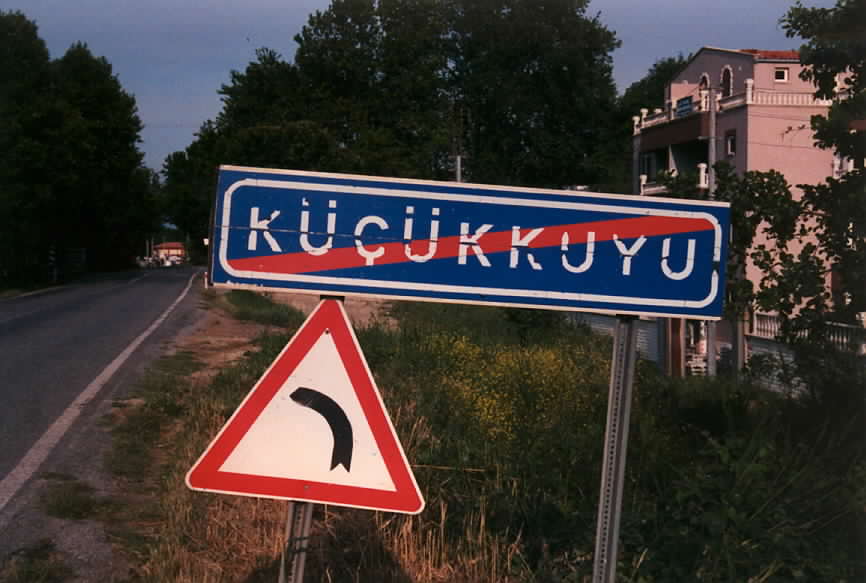 |
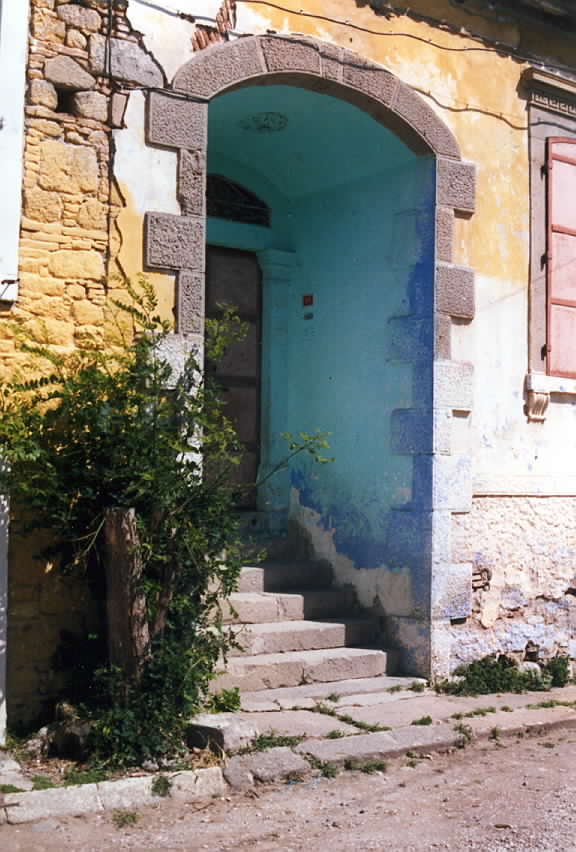 |
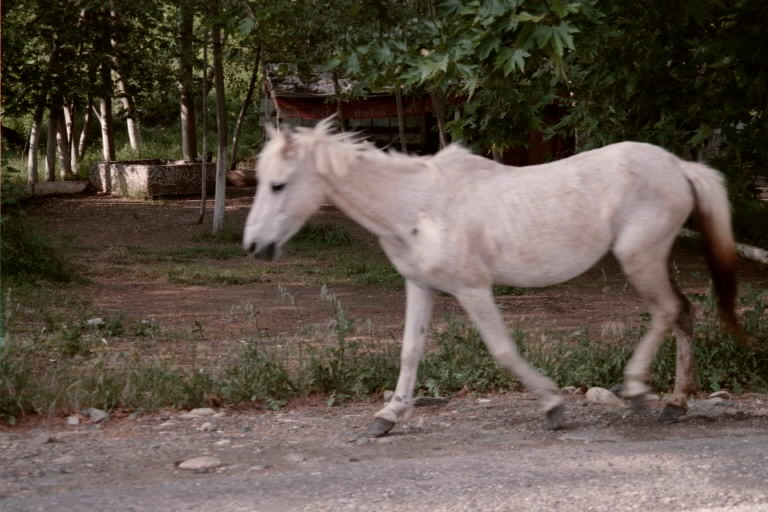 |
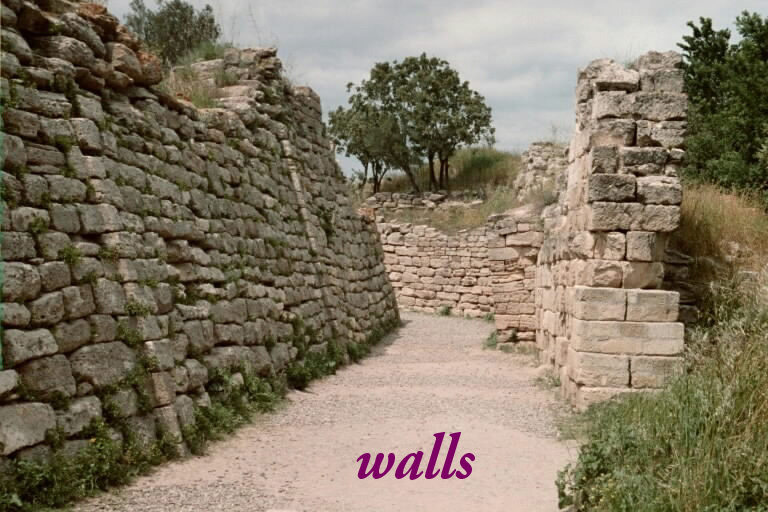 |
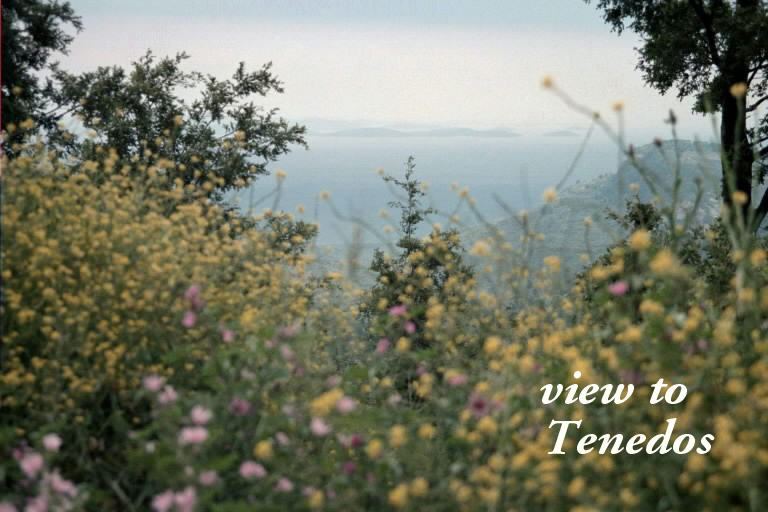 |
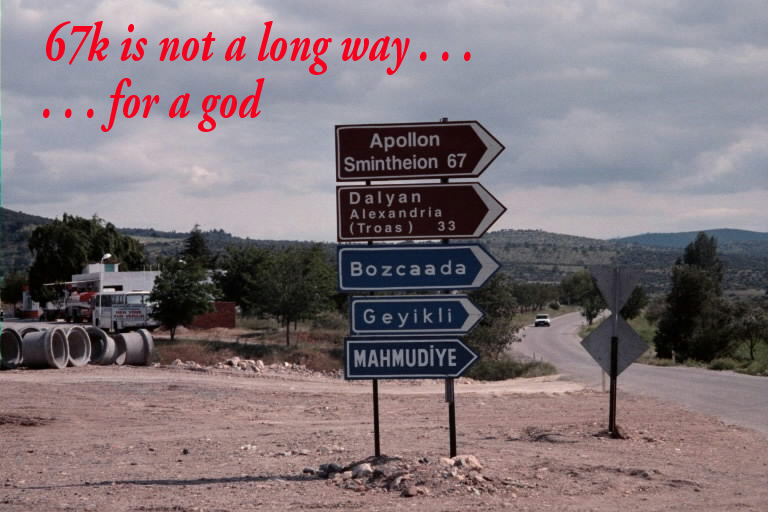 |
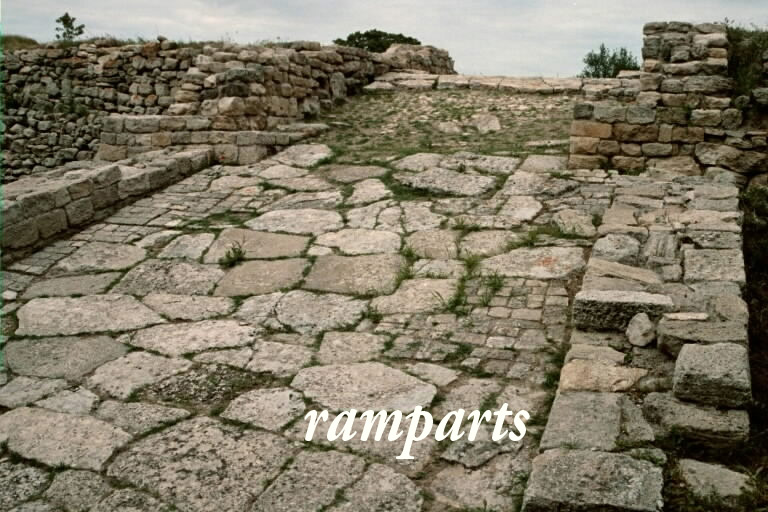 |
|
In thy western halls of gold
When thou sittest in thy state, Bards, that erst sublimely told Heroic deeds, and sang of fate, With fervour seize their adamantine lyres, Whose cords are solid rays, and twinkle radiant fires |
Here Homer with his nervous arms
Strikes the twanging harp of war, And even the western splendour warms, While the trumpets sound afar: But, what creates the most intense surprise, His soul looks out through renovated eyes. -- Keats, "Ode to Apollo" |
|
|
|
|